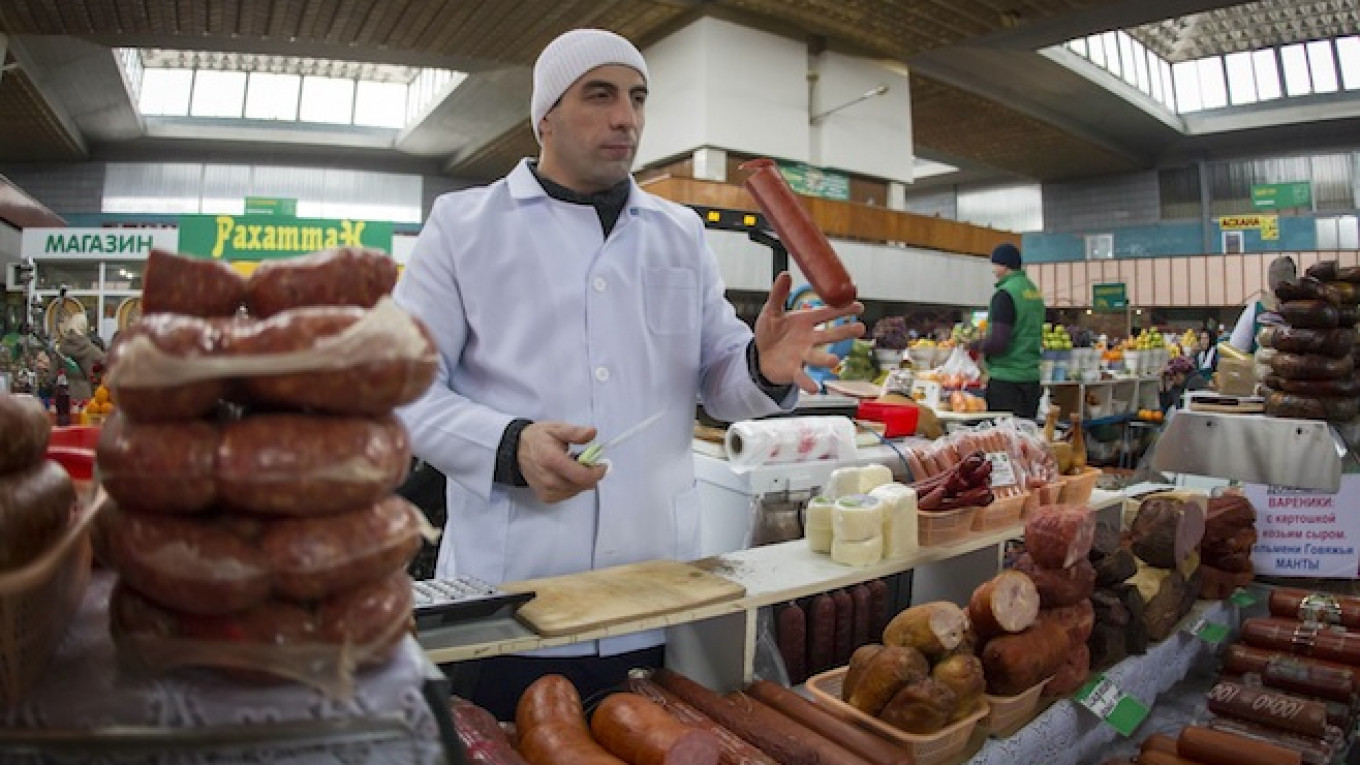A meat processing factory in St. Petersburg has taken Russia's sanctions battle with the West into new territory with plans to launch a line of sausages under the name “sanctions,” news reports said late last week.
Moscow last year banned imports of a host of foods — including sausages — from Europe and the United States in retaliation against Western sanctions over Ukraine that are helping push Russia into a deep recession. The move was a blow for Russian gourmets — most high-quality products used to come from Europe.
“We wanted to attract buyers' attention and show that despite sanctions life is continuing, and Russia is able to provide itself with a high-quality product,” entrepreneur Alexander Kashin, whose company Five Stars owns the factory, told news agency RBC.
Kashin was unable to assure his interviewer that all components used in the “sanctions” sausages were produced in Russia, but said that the Kronshtadtsky meat processing plant had begun using Russian supplies for nearly all main ingredients.
The factory's website boasts that it uses machines from “the best European manufacturers.”
Five Stars has already applied for the branding rights to the words “sanction” and “sanctions.”
Patent attorney Andrei Chernov told the Izvestia newspaper that there's no legal reason for the trademark to be denied.
Kashin is not the first entrepreneur to dip into Russia's conflict with the West in an attempt to drum up business. A number of companies and entrepreneurs applied last year for rights to the phrase “polite people,” a term used to describe the heavily armed, unidentified soldiers who occupied Crimea before the Russian annexation.
The Russian Defense Ministry's official clothing supplier ultimately patented the phrase.
A Message from The Moscow Times:
Dear readers,
We are facing unprecedented challenges. Russia's Prosecutor General's Office has designated The Moscow Times as an "undesirable" organization, criminalizing our work and putting our staff at risk of prosecution. This follows our earlier unjust labeling as a "foreign agent."
These actions are direct attempts to silence independent journalism in Russia. The authorities claim our work "discredits the decisions of the Russian leadership." We see things differently: we strive to provide accurate, unbiased reporting on Russia.
We, the journalists of The Moscow Times, refuse to be silenced. But to continue our work, we need your help.
Your support, no matter how small, makes a world of difference. If you can, please support us monthly starting from just $2. It's quick to set up, and every contribution makes a significant impact.
By supporting The Moscow Times, you're defending open, independent journalism in the face of repression. Thank you for standing with us.
Remind me later.






